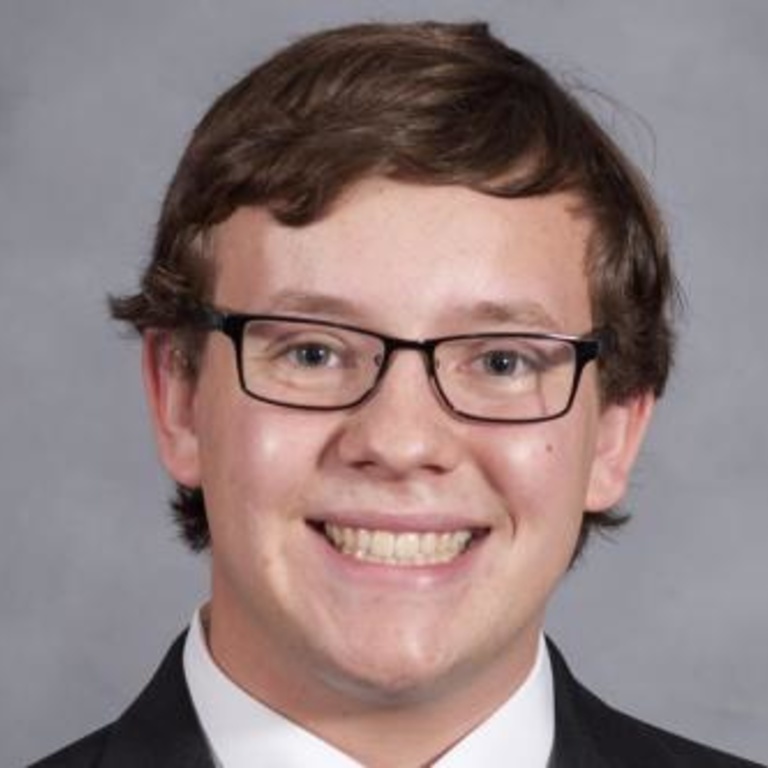People: Jacob Thompson, undergraduate student
Mission Area: Biotechnology
Lab: Worthington Lab
Jacob Thompson, a senior studying biomedical engineering, has been awarded the National Science Foundation Research Fellowship, granting him an annual stipend and funds toward tuition for the continuation of his studies.

Established in the early 1950s, the Graduate Research Fellowship Program is the country’s oldest program aimed at graduate students in STEM fields. The National Science Foundation has funded over 50,000 Graduate Research Fellowships, with 70% of students completing their doctorate within 11 years.
Thompson was selected out of a large pool of applicants for his work at the Worthington Lab. The lab’s research more generally focuses on cell-material interactions and how these interactions are controlled for use in various tissue engineering applications.
“My research experience at Iowa began when I first joined the Worthington Lab during the first semester of my sophomore year,” said Thompson. “I joined at the same time that the lab started, so it has been a great experience to see it grow over the last few years.”
Thompson’s personal work in the lab focuses on the fabrication of biopolymer cellular scaffolds to aid in photoreceptor cell replacement therapy. Millions of people in the US and around the world are afflicted with age-related macular degeneration (AMD). People with AMD, especially late-stage AMD, have lost many photoreceptor cells, resulting in vision loss. Photoreceptor cell therapy aims to re-introduce photoreceptor precursor cells to the retina and hopefully restore sight.
“My role is to develop these cellular scaffolds and highlight how changing properties of the scaffolds influences cell behavior,” said Thompson. “We can change scaffold stiffness, material choice, and structure, then monitor how the cells respond. Once we understand these responses, we can move forward and uncover how effective the scaffolds are during transplantation processes in animal models.”
Thompson will pursue a PhD in biomedical engineering at North Carolina State University this fall.